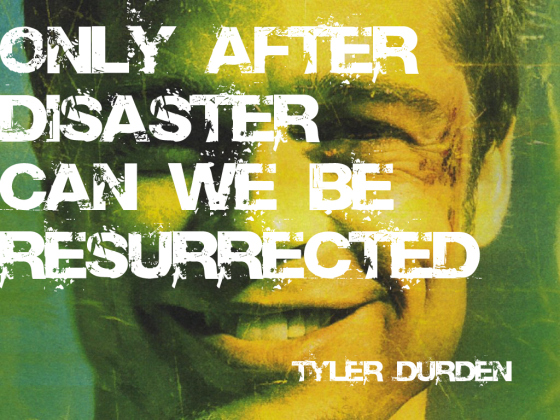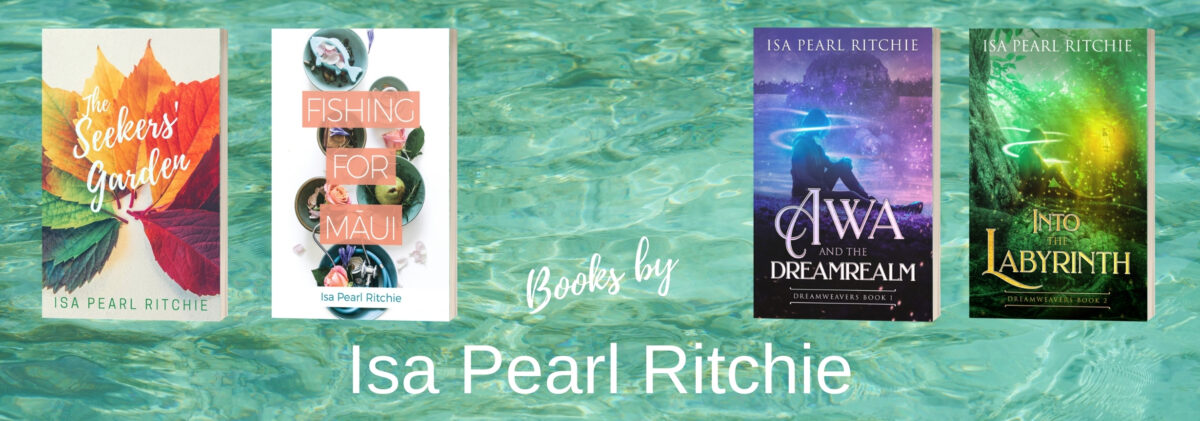Every now and then someone will treat you really badly, whether it’s accidentally, incidentally or intentionally, and trigger all this horrible emotional stuff, right? Maybe it’s your boss, your current or former lover/partner, your best friend, mother, father or child. Maybe the’re triggering anger, detrayal, anguish, fear. Maybe you react assertively or barely react at all but either way the feelings are there. The projections run wild: “That bitch!/bastard!/creep!/idiot!/scoundrel!” How dare they? We feel wounded, underneath all the other emotions. We feel hurt. We probably feel like the other someone else has hurt us and is doing us damage, but most probably, the damage has already been done – was done ages ago – and we are re-living it over and over, and over…
 The primal wound is the center of all other turmoil. It probably comes from the drastic post-natal separation from the womb or some other very early childhood trauma and every other painful experience has compounded it. It is what Eckhart Tolle calls the pain-body. He describes it as a tangled mess of wounded ego – of trauma, abandonment, betrayal, hurt, fear and general suffering. The pain-body is often dormant. We wander around living pretty sweet lives until something nasty happens and triggers all this shit.
The wound is primal because it pre-dates narrative-memory, it is part of primary human experience. It is the wrenching separation from the feeling of being connected, of being absolutely safe and warm, of floating in the centre of the universe. It is so difficult for us to learn that we aren’t the centre of the universe – at least not to everyone else – because everyone is struggling to learn the same thing. This traumatic separation triggers our base survival fear. We are terrified of our limitations, or our mortality, of our insignificance. There is only so much a young ego can take before it ruptures and becomes wounded.
The primal wound is the center of all other turmoil. It probably comes from the drastic post-natal separation from the womb or some other very early childhood trauma and every other painful experience has compounded it. It is what Eckhart Tolle calls the pain-body. He describes it as a tangled mess of wounded ego – of trauma, abandonment, betrayal, hurt, fear and general suffering. The pain-body is often dormant. We wander around living pretty sweet lives until something nasty happens and triggers all this shit.
The wound is primal because it pre-dates narrative-memory, it is part of primary human experience. It is the wrenching separation from the feeling of being connected, of being absolutely safe and warm, of floating in the centre of the universe. It is so difficult for us to learn that we aren’t the centre of the universe – at least not to everyone else – because everyone is struggling to learn the same thing. This traumatic separation triggers our base survival fear. We are terrified of our limitations, or our mortality, of our insignificance. There is only so much a young ego can take before it ruptures and becomes wounded.
 Although it’s obvious that living life through this woundedness is not in one’s best interests, we can become awfully attached to our wounds and the traumas and dramas that inevitably surround them. We construct our identities around them: “I am so-and-so and I am ____” insert addiction/trauma/negative label here. We can even be proud of what we’ve suffered to the point that we refuse to stop suffering. Our woundedness gives us an excuse to opt-out of life-obligations, it gives us an excuse to be nasty because we were once treated that way. Really, you don’t need the excuse. If you want to opt-out, do it, if you want to be nasty, go ahead. Excuses are just more unnecessary justification. If you want drama, there is plenty to create and share. If you’re over it and want to move on then begin the disentangling process.
We feel justified in our suffering, in our anger, in our vengeful thoughts. Maybe we are justified, let’s assume we are, either way justification isn’t useful. If we just stay ‘justified’ we tangle the wound even more. We can hold onto all the crap. We easily get stuck. Let’s try something different. Let’s try disentangling from current projections and old trauma. Drop the other people from the equation for a minute. Good work. Now, what is left? That wound. Over the years it has been pushed down into the unconscious to fester, it has been covered over with all sorts of ugly and pretty things. It has become like a boil, an infection seething under the skin and this new trauma, this new trigger of pain/fear/anger has brought it to the surface. It’s not a pretty sight, but it is a chance to clear out the pus, clean the wound and let it heal.
Although it’s obvious that living life through this woundedness is not in one’s best interests, we can become awfully attached to our wounds and the traumas and dramas that inevitably surround them. We construct our identities around them: “I am so-and-so and I am ____” insert addiction/trauma/negative label here. We can even be proud of what we’ve suffered to the point that we refuse to stop suffering. Our woundedness gives us an excuse to opt-out of life-obligations, it gives us an excuse to be nasty because we were once treated that way. Really, you don’t need the excuse. If you want to opt-out, do it, if you want to be nasty, go ahead. Excuses are just more unnecessary justification. If you want drama, there is plenty to create and share. If you’re over it and want to move on then begin the disentangling process.
We feel justified in our suffering, in our anger, in our vengeful thoughts. Maybe we are justified, let’s assume we are, either way justification isn’t useful. If we just stay ‘justified’ we tangle the wound even more. We can hold onto all the crap. We easily get stuck. Let’s try something different. Let’s try disentangling from current projections and old trauma. Drop the other people from the equation for a minute. Good work. Now, what is left? That wound. Over the years it has been pushed down into the unconscious to fester, it has been covered over with all sorts of ugly and pretty things. It has become like a boil, an infection seething under the skin and this new trauma, this new trigger of pain/fear/anger has brought it to the surface. It’s not a pretty sight, but it is a chance to clear out the pus, clean the wound and let it heal.
 Awareness is always helpful, like a flash light in the dark. If we can focus on this wound – not in an unhelpful dwelling-on-it-going-around-in-circles kind of way because that will only get us more tangled up – but in way that is clear of projections, in a way that regularly cleans it out and wraps it in safe thoughts, in a way that occasionally squeezes out more of the pus until there is none left, then we can give it all the right things to heal. We don’t do the healing in our minds, we just remove the barriers. Healing is automatic in the right circumstances. To speed it up we can nurture ourselves. We can eat the foods our body really wants (not the kind our wound-wrapped-mind craves for comfort), we can move and stretch and exercise in the way our bodies prefer. We can create and be with friends and in nature and do all those things that feed us. We can listen inwards to what we really need instead of looking outwards into projections of happiness on the buffet-table of life that may be all empty-calories and no nutrient-density. A special kind of freedom is possible when we can separate ourselves from the drama and projections of the mundane world, and freedom can be terrifying too, but at least it’s not tedious repetitive cycles of pain.
Awareness is always helpful, like a flash light in the dark. If we can focus on this wound – not in an unhelpful dwelling-on-it-going-around-in-circles kind of way because that will only get us more tangled up – but in way that is clear of projections, in a way that regularly cleans it out and wraps it in safe thoughts, in a way that occasionally squeezes out more of the pus until there is none left, then we can give it all the right things to heal. We don’t do the healing in our minds, we just remove the barriers. Healing is automatic in the right circumstances. To speed it up we can nurture ourselves. We can eat the foods our body really wants (not the kind our wound-wrapped-mind craves for comfort), we can move and stretch and exercise in the way our bodies prefer. We can create and be with friends and in nature and do all those things that feed us. We can listen inwards to what we really need instead of looking outwards into projections of happiness on the buffet-table of life that may be all empty-calories and no nutrient-density. A special kind of freedom is possible when we can separate ourselves from the drama and projections of the mundane world, and freedom can be terrifying too, but at least it’s not tedious repetitive cycles of pain.

